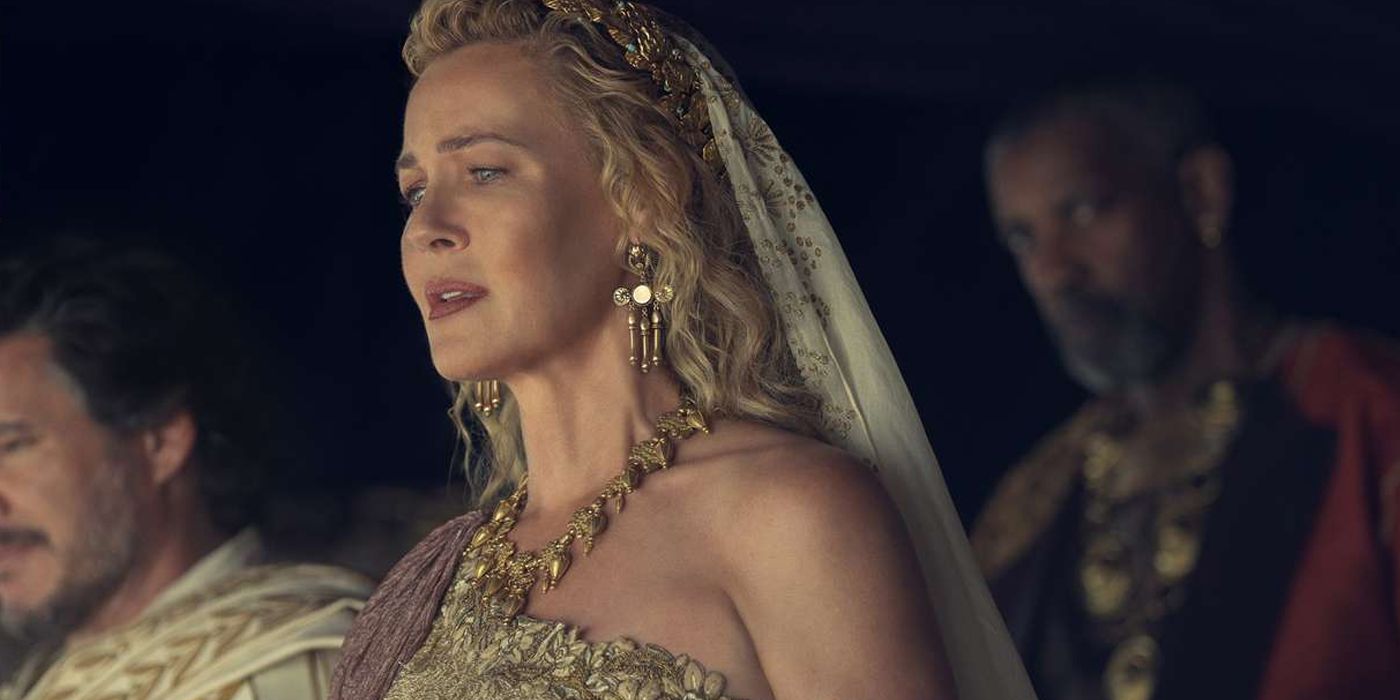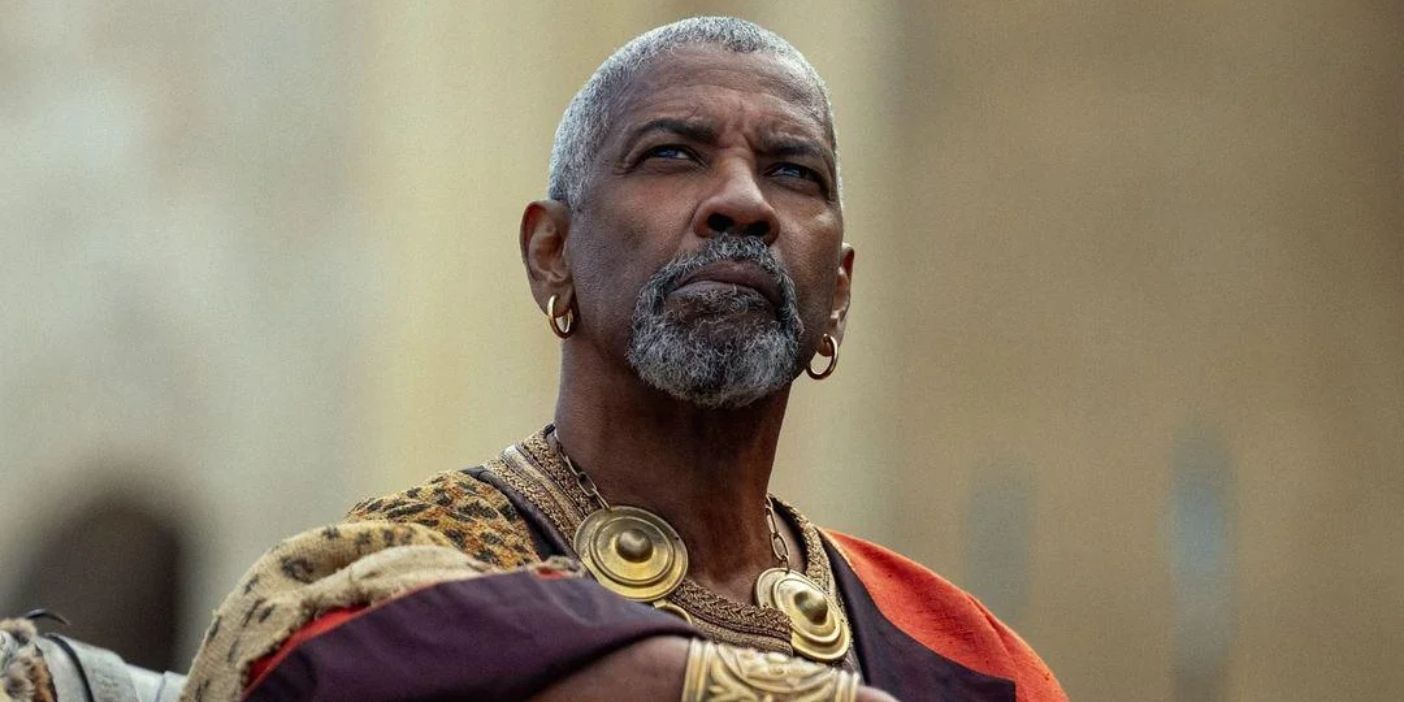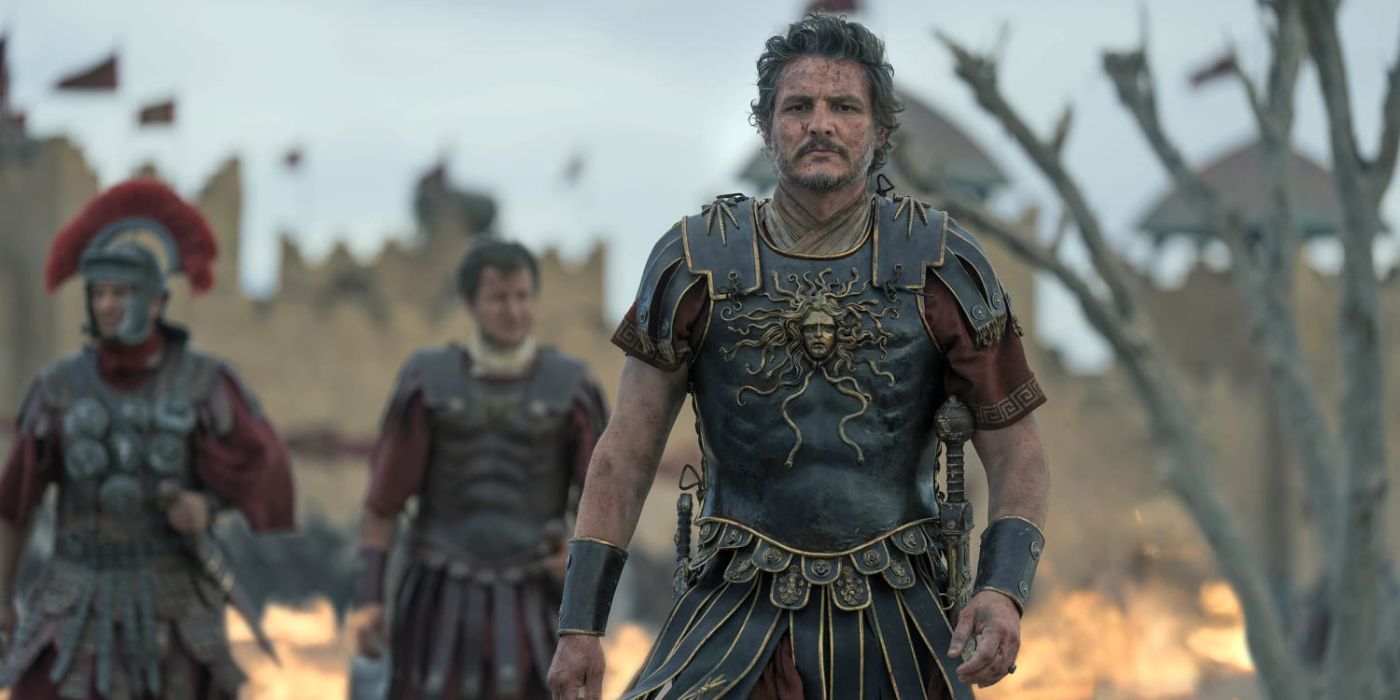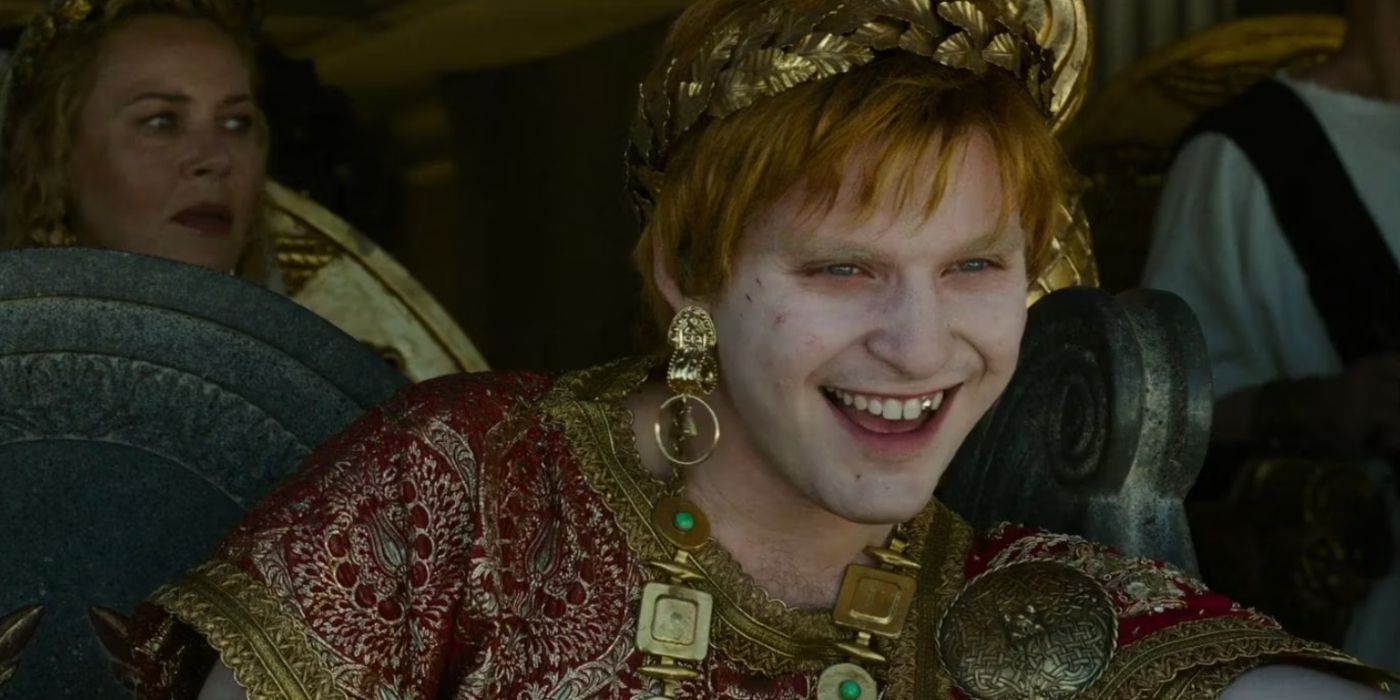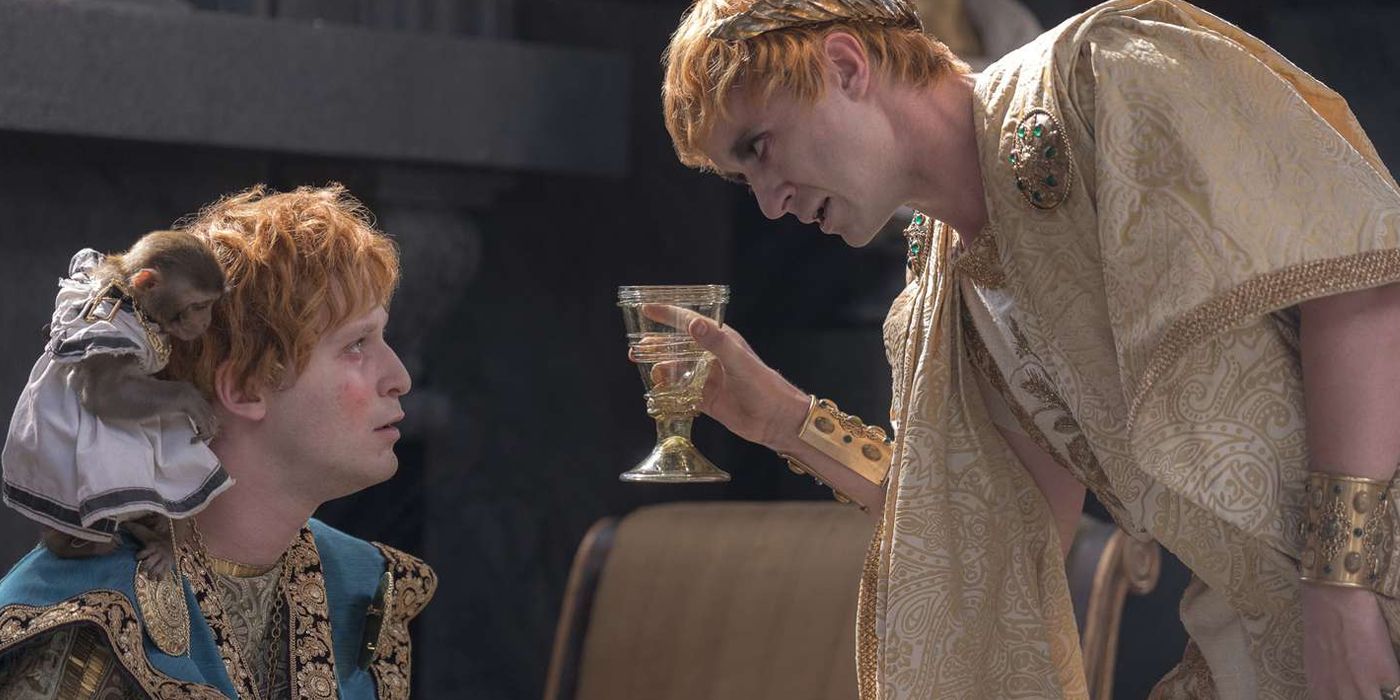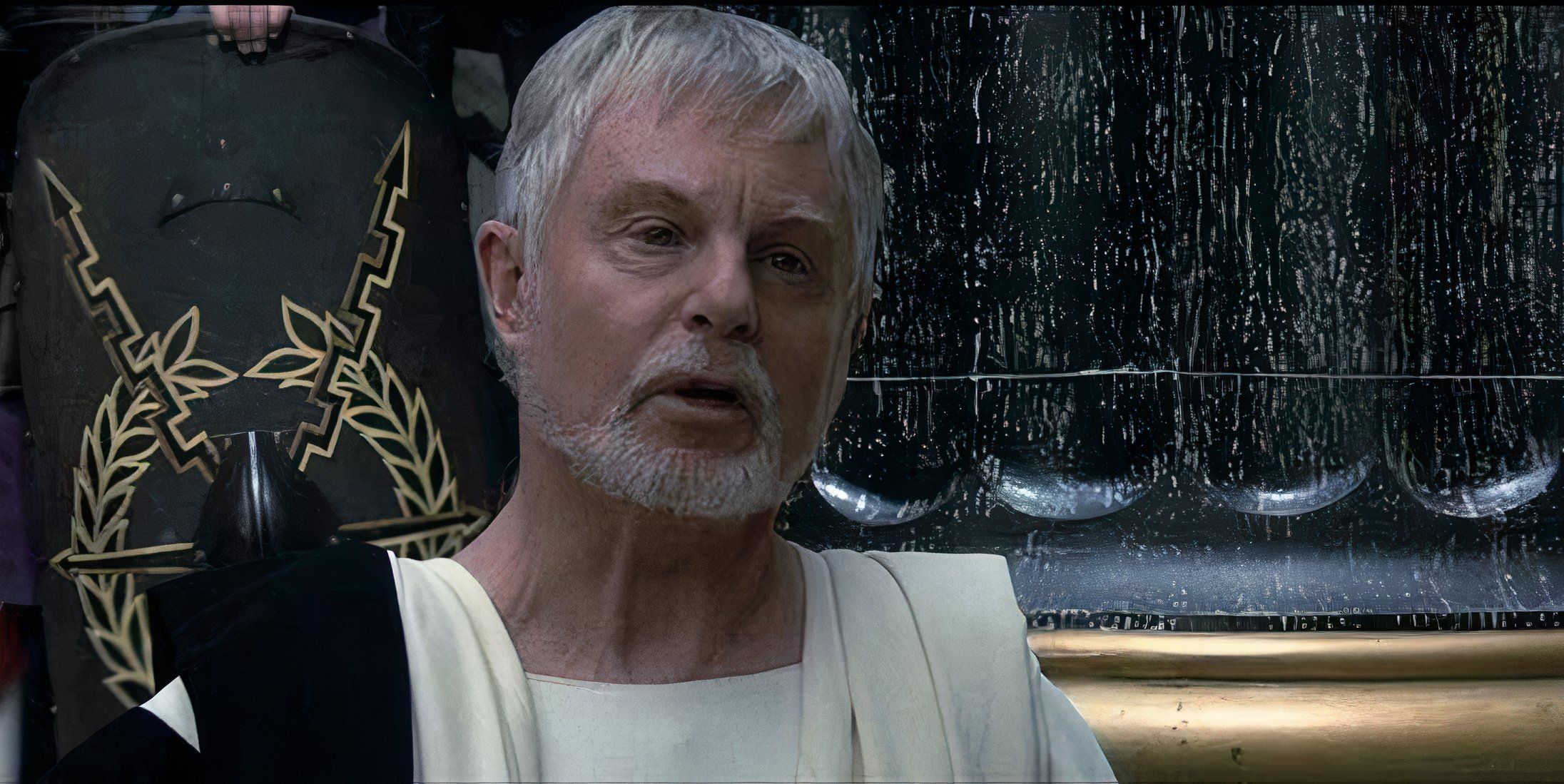
The first Gladiator film set a high cinematic standard with its immersive storytelling and deep dive into Roman antiquity with themes of honor, revenge, and freedom at the center of its plotlines. As Ridley Scott returns with Gladiator 2, fans are excited about the new cast of characters, many of whom are inspired by historical figures. The sequel’s story picks up roughly 20 years later. After the death of Commodus, Rome fell into the hands of the Year of Five Emperors. Five senior figures claimed rule over the Empire, with one of those being Severus Septimus. As a result, the throne fell to his sons, Geta and Caracalla, after his death.
While three original characters return in the sequel, one actor was replaced: Spencer Treat Clark, who played Lucius Verus. Lucius, who is now an adult, is portrayed by Paul Mescal. Like in the first movie, Scott doesn’t shy away from changing the historical versions of these characters to some degree. Filmmaking often requires these changes to make a story fluid for the relatively short time to tell an overall story. Nevertheless, the historical counterparts of these characters were just as fascinating.
Lucius Verus Is a New Protagonist With a Chip on His Shoulder
Historical Counterpart: Lucius Verus II (DOB unknown)
The primary protagonist of Gladiator 2 is Lucius Verus, a character who is both a continuation and a bridge between the legacy of Maximus and the complex political world of the Roman Empire years later. Audiences know him from Gladiator as the young son of Lucilla. The sequel’s narrative picks up with Lucius as a young adult, roughly 20 years after the events in the first film. Lucius harbors a lot of resentment towards his mother, Lucilla. She sent him away to North Africa to protect him when he was still a child. Later on, he gets captured and unknowingly ends up in the same position as his father, who is revealed to be Maximus. Like his father, Lucius lost a wife and child and became a slave. Now he must find meaning in his altered life path.
The real Lucius Verus (Lucius Verus II) was the son of Lucius Verus (co-emperor alongside Marcus Aurelius) and Lucilla. He had two sisters, Aurelia Lucilla and Lucilla Plautia, and a little brother named Pompeianus from his mother’s second marriage. Lucius and his sister Aurelia died at a young age, presumably even before Commodus became the new emperor.
Lucilla Is a Fierce Protector With Great Survival Skills
Historical Counterpart: Annia Aurelia Galeria Lucilla (AD 148 or 150–182)
In Gladiator 2, Lucilla comes face to face with her son Lucius when he returns to Rome as a slave. At first, she doesn’t recognize him because she sent him away so long ago, and later on, she reveals that his real father was actually Maximus Aurelius. Lucilla is now married to Marcus Acacius, a general trained under Maximus Decimus Meridius. The real Lucilla was a Roman empress and daughter of Emperor Marcus Aurelius. At age 14, she married her father’s co-ruler, Lucius Verus, a union that produced three children and elevated her to empress.
Following Verus’s death in 168/169, she was arranged to marry Tiberius Claudius Pompeianus Quintianus, a Syrian Roman politician, despite objections from Lucilla and her mother due to his age and lower social status. In 182, during the reign of her unstable brother Commodus, Lucilla orchestrated an assassination plot against him, aiming to install herself and her second husband as Rome’s rulers. The unsuccessful attempt led to dire consequences – Commodus banished Lucilla and her daughter to Capri, ultimately ordering their execution that same year. Her life reflects the complex political dynamics of the Roman Empire and the often tragic consequences of power struggles within the imperial family.
Macrinus Achieves Ambitious Goals as a Cunning Prefect
Historical Counterpart: Macrinus (AD 164/165–218)
In Gladiator 2, Macrinus is introduced as a calculating and ambitious figure within the Roman hierarchy. He is a former slave who became a powerful trader and arms dealer with ambitions to usurp power from the current emperors, Caracalla and Geta. Macrinus takes Lucius under his wing as a gladiator in training, realizing his true potential. Macrinus is clever and charismatic, but there’s also a sense of menace to this personality.
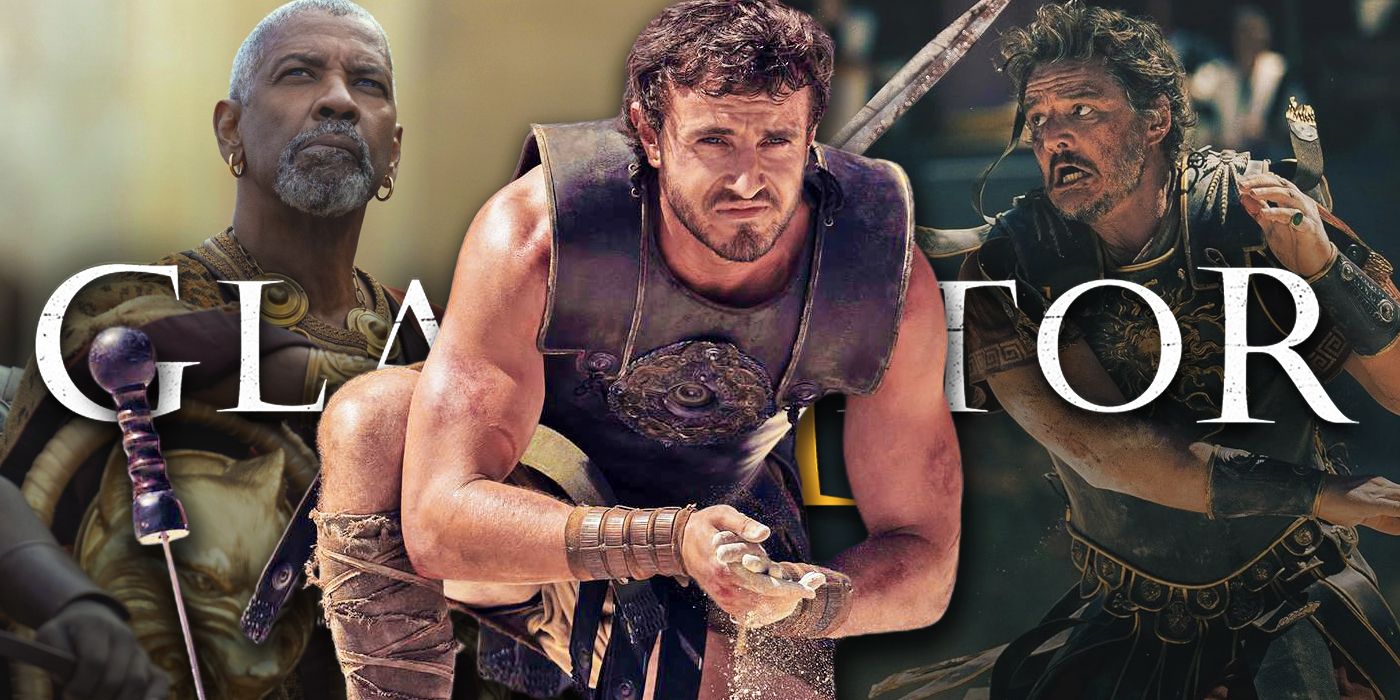
Related
Ridley Scott’s Gladiator II Debuts With Surprising Rotten Tomatoes Score
Ridley Scott’s Gladiator sequel gets its debut Rotten Tomatoes score.
Historically, Marcus Opellius Macrinus was the first Roman emperor to rise from an equestrian, or non-senatorial, background. He served as a Praetorian Prefect under Emperor Caracalla and is most famous for his eventual involvement in the assassination plot against him. Though Macrinus seized power briefly, he faced many challenges due to his lack of noble lineage and struggled to gain the Senate’s support. Macrinus was overthrown at the Battle of Antioch on June 8, 218, and Elagabalus proclaimed himself emperor with the support of the rebelling Roman legions. Macrinus fled the battlefield and tried to reach Rome but was captured in Chalcedon and later executed in Cappadocia.
Marcus Acacius Hides a Hidden Agenda Under the Guise of a Loyal General
Historical Counterpart: A Composite Character Inspired by Military Leaders of the Severan Dynasty
Marcus Acacius plays a crucial role in the storyline of Gladiator 2. He is a powerful general who trained under Maximus and becomes essentially his successor. He leads the Roman invasion in Numidia and captures Lucius. While Acacius is a man of honor and a highly skilled fighter, he is a complex character who seems to be a hero and villain in equal parts. According to the movie’s synopsis, he is responsible for the death of Lucius’ wife and child. Lucius is driven by revenge on Acacius. However, their relationship becomes increasingly complex when Lucius discovers that Acacius is married to his mother, Lucilla.
Marcus Acacius doesn’t have a direct historical counterpart, but his character was inspired by a blend of military leaders who served during the time of Caracalla and Geta. Acacius draws from historical figures like Gaius Fulvius Plautianus, a trusted military advisor and prefect, and others loyal to the Severan dynasty, who helped maintain stability amid dynastic conflicts. These generals were tasked with securing the empire’s borders, often mediating between political factions.
Caracalla Is a Bloodthirsty Co-Emperor With a Pet Monkey
Historical Counterpart: Lucius Septimius Bassianus, alias Caracalla (AD 188–217)
In the film, Caracalla is the Co-Emperor, alongside his brother Geta. Unlike this brother, Caracalla is more of an introvert who is more interested in gladiator fights than politics. Caracalla seems malleable and hides his obvious madness much better than his brother. At times, Caracalla appears downright childlike. Caracalla only truly loves one thing: his pet monkey Dondas. Filmmaker Ridley Scott described the two brothers as reminiscent of Romulus and Remus.
The real Caracalla was the son of Emperor Septimius Severus and ruled alongside his younger brother Geta before orchestrating his murder just a year after their joint reign began. The brothers had been competitive since childhood, but after their father’s death, their hatred towards each other grew much worse. Additionally, Caracalla killed everyone who had been a supporter of his brother, which was close to 20,000 men. His reign was marked by the infamous Constitutio Antoniniana, which granted citizenship to many free inhabitants of the empire, though it was mainly intended to increase tax revenue. Caracalla’s rule was characterized by his violent purges and the lavish construction of the Baths of Caracalla in Rome. Caracalla is regarded as one of the cruelest emperors in Roman history.
Geta Reigns as an Outlandish and Tyrannical Co-Emperor
Historical Counterpart: Publius Septimius Geta (AD 189–211)
Geta, the Co-Emperor of the Roman Empire, is portrayed in the sequel as the extrovert of the brotherly duo. Geta is more effective at communicating with the Senate and frequently reminds Acacius of his standing in the hierarchy in Rome. Geta is the active driving force in all matters of violence. Geta is equally deranged as his brother Caracalla. Ridley Scott implied in interviews that these two brothers suffer from a genetic defect.
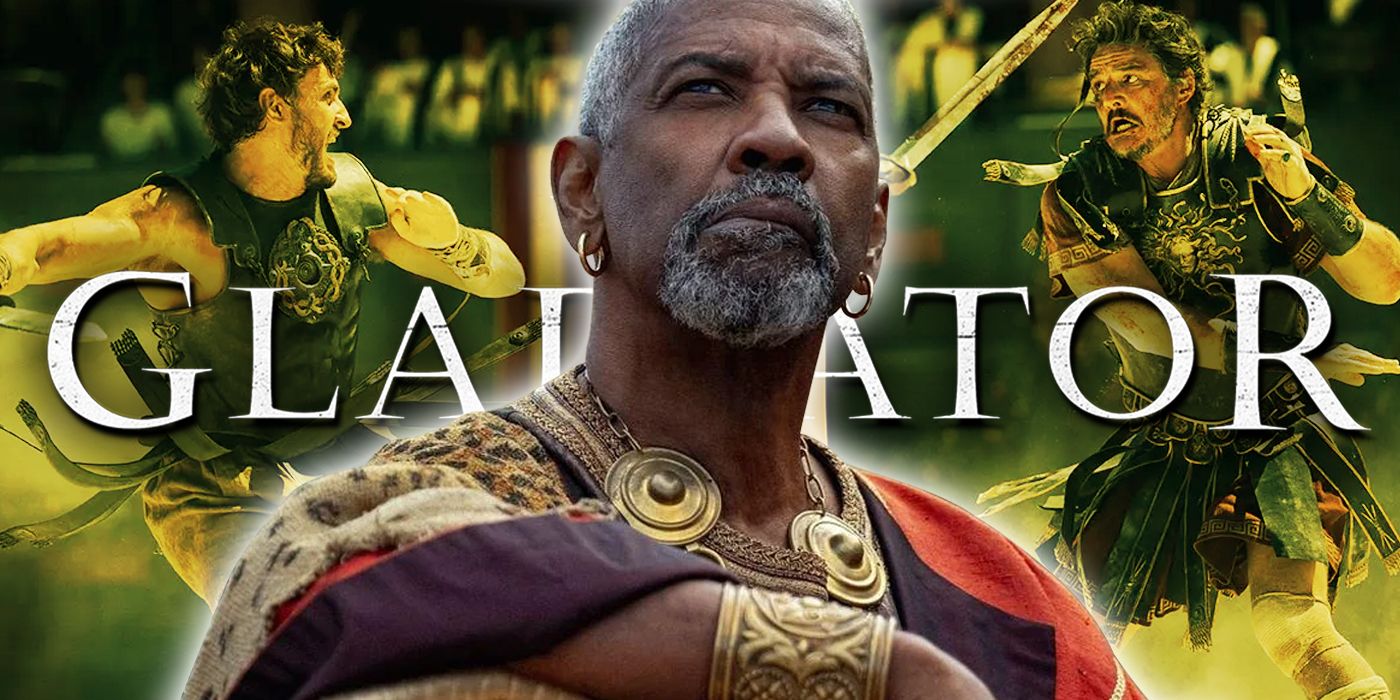
Related
10 Things Gladiator Fans Need to Remember Before Seeing Gladiator II 24 Years Later
Gladiator fans should keep these things in mind as they watch Ridley Scott’s highly-anticipated sequel.
Historically, Geta was co-emperor with Caracalla after the death of their father, Septimius Severus. According to records, Geta was actually 11 months younger than Caracalla and not his twin brother, as depicted in the movie. The brothers were often at odds, with their rivalry stemming from personal and political differences. Despite efforts by their mother, Julia Domna, to mediate, Caracalla murdered Geta right in front of her. Besides the violent massacre of Geta’s supporters, Caracalla attempted to erase all memory of his younger brother by removing statues, paintings, and coins and erasing his name from all records. According to several recorded accounts, Caracalla had attempted to kill his younger brother several times before he ultimately succeeded.
Gracchus Proves to Be a Resilient Senator With a Liberating Vision
Historical Counterparts: Tiberius Gracchus (163–133 BC) and Gaius Gracchus (154–221 BC)
Gracchus is one of the few characters to reappear in Gladiator 2, portrayed by the same actor. In the original movie, he is a Roman senator who allies with Maximus and Lucilla. Together, they aim to implement Marcus Aurelius’ vision of returning Rome to the hands of the people. In the sequel, Gracchus supports Acacius, who plans a coup against the emperors.
While Gracchus is a fictional character, he was inspired by the Gracchus brothers, Tiberius and Gaius. The Gracchus brothers are key figures in Roman history for their pioneering but ultimately tragic efforts to address economic inequality and political corruption. Tiberius, the elder, began this reformist mission as tribune of the plebs in 133 BC, advocating for land redistribution to aid poorer citizens. This initiative challenged the Senate’s authority. Tiberius’ willingness to depose a fellow tribune in defense of his reforms intensified opposition, culminating in his assassination. His younger brother, Gaius, carried on this legacy a decade later, introducing several reforms, including judicial restructuring, new colonies, and a subsidized grain program. Though Gaius’ efforts resonated with the people, they heightened political tensions and led to his violent death. However, the Gracchi’s reforms endured, and their efforts marked a turning point in the Republic’s struggle with social inequality.
Gladiator 2 premieres nationwide on November 22.
Discover more from reviewer4you.com
Subscribe to get the latest posts to your email.
